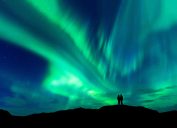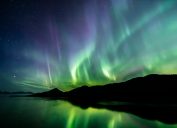You Can See the Northern Lights in at Least 17 States Next Week—Here's How
Witness the beauty of the aurora borealis without leaving home.
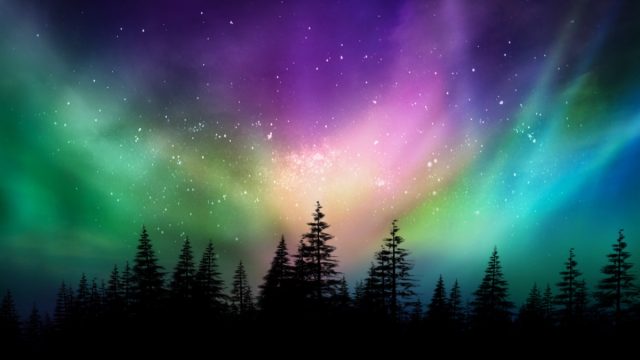
Seeing the northern lights tops many stargazers' bucket lists for a good reason: This natural phenomenon is truly a wonder to behold. Otherwise known as the aurora borealis, these lights appear as a result of charged particles from the sun interacting with the Earth's magnetic field, per the Library of Congress. You may be under the impression that you can only see this colorful spectacle if you venture to Alaska or Canada, but that's not entirely true. In fact, the northern lights will be visible in at least 17 U.S. states on July 13—and potentially even more. Read on to find out where and how you can catch a glimpse.
READ THIS NEXT: 6 Stargazing Secrets, According to Astronomy Experts.
The lights will either be visible overhead or low on the horizon.
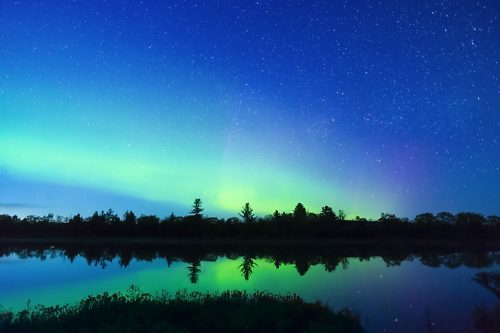
The Geophysical Institute at the University of Alaska Fairbanks is predicting high "auroral activity" next week, specifically on Thursday, July 13.
"Weather permitting, highly active auroral displays will be visible overhead from Inuvik, Yellowknife, Rankin and Iqaluit to Vancouver, Helena, Minneapolis, Milwaukee, Bay City, Toronto, Montpelier, and Charlottetown, and visible low on the horizon from Salem, Boise, Cheyenne, Lincoln, Indianapolis and Annapolis," the July 13 forecast reads, citing cities in both Canada and the U.S.
As USA Today reports, in the U.S., the northern lights may be visible from Alaska, New York, New Hampshire, Maine, Washington, and South Dakota. The university cites specific cities in Maryland, Montana, Minnesota, Wisconsin, Michigan, Vermont, Massachusetts, Idaho, Wyoming, North Dakota, and Indiana.
Per the University of Alaska Fairbanks' map, however, several other states may see the northern lights low on the horizon. These additional states include Oregon, Colorado, Kansas, Nebraska, Missouri, Ohio, West Virginia, Pennsylvania, Virginia, New Jersey, Connecticut, and Rhode Island.
Experts also predict high auroral activity the night before.
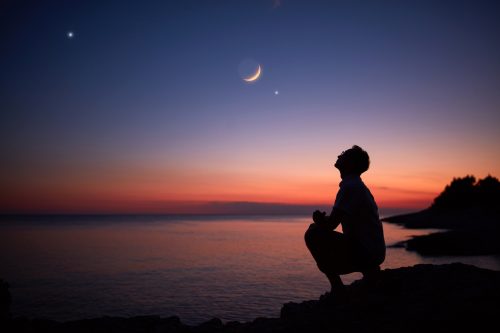
Depending on where you live, you might get a sneak peek of the aurora borealis on Wednesday night.
Activity is also anticipated to be high on July 12, per the university's forecast, which predicts that the lights will be visible overhead in Juneau, Alaska, and active auroral displays will be visible low on the horizon in Seattle, Chicago, Cleveland, Boston, and Des Moines, Iowa.
RELATED: For more up-to-date information, sign up for our daily newsletter.
The view is weather permitting.
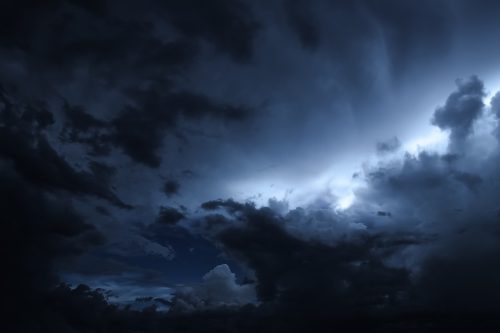
The forecast notes that your ability to see the northern lights depends on the weather. Because you won't be able to see the vivid green or red colors through clouds, Space.com recommends checking your local forecast before venturing out.
If the weather looks like it's on your side, expect to see the best activity between 10 p.m. and 2 a.m. local time, per the National Oceanic and Atmospheric Administration (NOAA) Space Weather Prediction Center.
You won't need a telescope to see the aurora borealis, but city dwellers should get away from the bright urban lights, as darkness is essential. Thankfully, the moon is in its last quarter phase next Thursday, which means that its brightness won't play as big of a role in obstructing your view.
Aurora have appeared before–and they'll appear again.
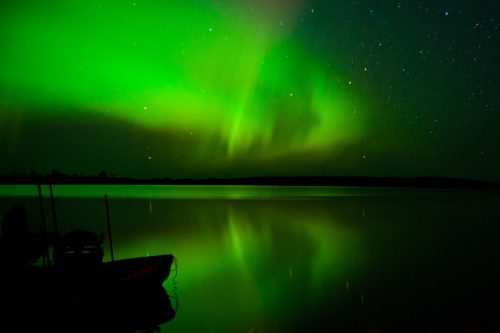
This isn't the first time that the northern lights made an appearance over the U.S. In May, "supercharged" northern lights were anticipated, and in April, lights were visible over 30 U.S. states.
If you miss next week's display, the University of Alaska Fairbanks assures you that experts will continue to regularly predict when and where aurora will appear—although these forecasts aren't as reliable as your daily and weekly weather.
